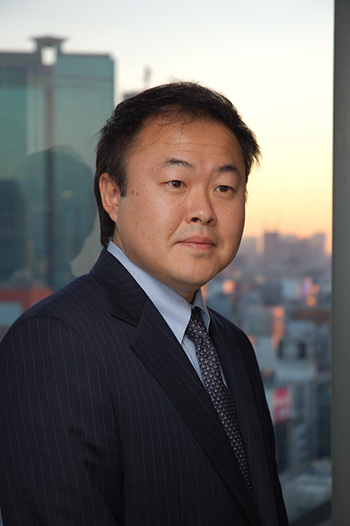The Power of International Cultural Activities that Connect Regions and the World
- On the occasion of the Japan Foundation Prizes for Global Citizenship being awarded to 100 organizations
The Japan Foundation established the Japan Foundation Prizes for Global Citizenship* in 1985, and has been supporting organizations which, via their international cultural exchange activities nationwide, deepen connections and cooperation between people in Japan and overseas, thereby fostering the mutual exchange of knowledge, ideas and information, and encouraging people to think together. Last year, in fiscal 2016, the Prizes for Global Citizenship reached the milestone of being awarded to the 100th organization.
With that in mind, we asked Professor Yasushi Watanabe at Keio University SFC, who has a detailed knowledge of organizations that contribute to regional development by undertaking international cultural activities in regions throughout Japan, to contribute a piece about the significance of international cultural exchange in the regions, and the outlook for that exchange and the role performed by the Japan Foundation Prizes for Global Citizenship.

The number of organizations to be awarded Prizes for Global Citizenship has reached 100.
Yasushi Watanabe (Professor, Keio University SFC)
To date, I have observed a large number of organizations that are contributing to regional promotion by undertaking international cultural activities in regions throughout Japan, and in the course of observing them I felt several things keenly.
The first thing I realized was that by acting as mediators with the world, the organizations provide opportunities for us to reconfirm our regional distinctiveness. It has been some time since the excessive concentration of business and population in the Tokyo metropolitan area was pointed out, but before anyone knew it, Japan's regional areas had ended up defining their own values through comparisons with Tokyo (or metropolises). As a result of that, even if you took the trouble to travel to the regions from Tokyo, in many cases you were met with lines of chain stores that resembled Tokyo, and cultural settings that appeared to mimic trends in Tokyo. In that respect, connecting with regions and organizations overseas through each regional area's "bonds" - without using Tokyo as an intermediary - and becoming familiar with one's own appeal, challenges, and strengths and weaknesses as a result of that process must be very deeply significant.
The second thing I felt is that through these international cultural activities it is possible to become aware not only of our own regional distinctiveness but also of our "commonality" with other countries. When we talk about "understanding different cultures" there is a tendency to focus solely on our differences with the other parties, but based even on my own experience, I get a sense that in fact, in many cases the real thrill for me has come from experiencing that "they are the same as me," in other words, the joy of a response that tells me my own experiences and sensations are somehow universal. The recent expansion in information media has also resulted in information on "cultural other" swirling about at dizzying speed. While that brings a significant number of benefits, on the one hand, it is also one factor contributing to the amplification of stereotypes and prejudice. It is at times like this in particular that it is important to find oneself among others and find others within oneself by interacting with "others" directly through international cultural activities. Above all else, I suspect that experiencing those sensations when young (or ensuring young people experience them) will make a definitive difference to the quality of a person's life subsequently.
The third thing I realize when I look back on the activities of the organizations I have observed thus far is that in many cases they were novel concerning the way they were run or their management or governance in other words. By "novel" I mean they adopted a network-type approach (independent, decentralized, and cooperative) rather than a hierarchal-type approach, their administration was all about "support" rather than "leadership." That is to say, innovation and private-sector dynamism were skillfully utilized. These approaches frequently appear to be "novel" to an "armchair" researcher or specialist, but I was often surprised and impressed to see them being implemented completely naturally by regional organizations. In one respect this may also be one of the curses of the "Tokyo" mentioned above. By necessity, Tokyo has many bureaucratic and corporate-like organizational structures, and without even realizing it, researchers and specialists also tend to think of this as a given. However, I have a feeling that conversely, it is the regions that are advanced and are overflowing with useful ideas.
The role and responsibility that the Japan Foundation Prizes for Global Citizenship fulfill as a platform for recognizing these unique initiatives in regions around Japan is significant. Of course, the prize program is meaningful in terms of communicating and sharing both domestically and internationally the outstanding endeavors that originate in Japan. It is my hope that, inspired by the initiatives of the organizations that receive the prizes, creative endeavors and synergy effects are produced all over Japan and throughout the world. At the same time, in the current state of globalization that becomes homogenous, there is an urgent need to reshape local values and connect them to the broader world. Under such circumstances, I believe the prizes can also serve as an opportunity for amassing creative endeavors that originate overseas, not only those originating in Japan. That is because I believe it would provide an opportunity to relativize the Japan Foundation Prizes for Global Citizenship program and furthermore to enhance it. Additionally, it is because I believe this would also contribute to the more universal "international benefit" and not solely benefit "Japan" (by which I mean "Tokyo" and "regional areas"). In 2020 Japan will host the Olympic and Paralympic Games in Tokyo. I, by all means, would like the Japan Foundation to promote the achievements and significance of the Prizes for Global Citizenship more firmly and more boldly around the world.
*When initially founded the prize program was known as the Prizes for the Promotion of Community-Based Cultural Exchange. It was renamed in 2004 as The Japan Foundation Prizes for Community-Based Cultural Exchange, and then given its current name, the Japan Foundation Prizes for Global Citizenship, in 2005.
Yasushi Watanabe
Born in 1967, Yasushi Watanabe is a professor at the Graduate School of Media and Governance, Keio University SFC. He received a PhD from Harvard University and specialized in cultural anthropology, cultural policy theory, and American studies. His publications include Bunka to Gaiko [culture and diplomacy] (Chuokoron-shinsha), and "Bunka" wo Toraenaosu [re-perceiving "culture"] (Iwanami Shoten).
Related Articles
Back Issues
- 2025.12.19 Echoes of a War Unli…
- 2025.6.24 Exclusive Interview:…
- 2025.5. 1 Ukrainian-Japanese I…
- 2024.11. 1 Placed together, we …
- 2024.5.24 The 50th Japan Found…
- 2024.5.24 The 50th Japan Found…
- 2024.5. 2 People-to-People Exc…
- 2024.2.19 Movie Theaters aroun…
- 2024.2.19 Movie Theaters aroun…
- 2023.4.24 The 49th Japan Found…


